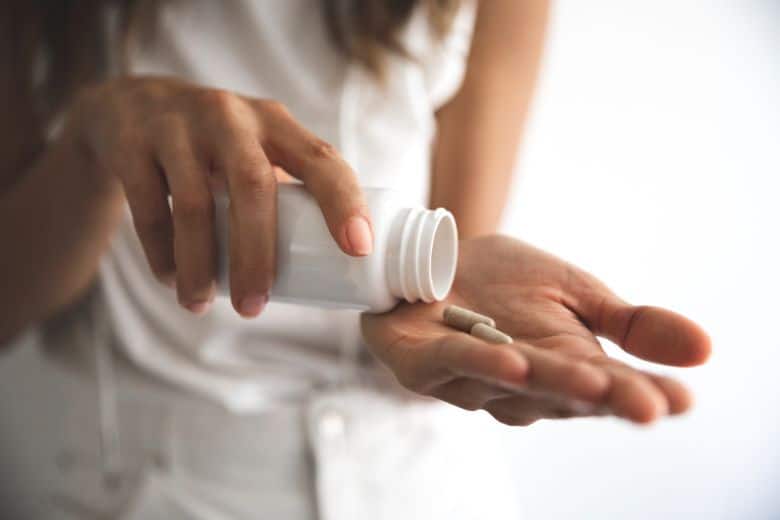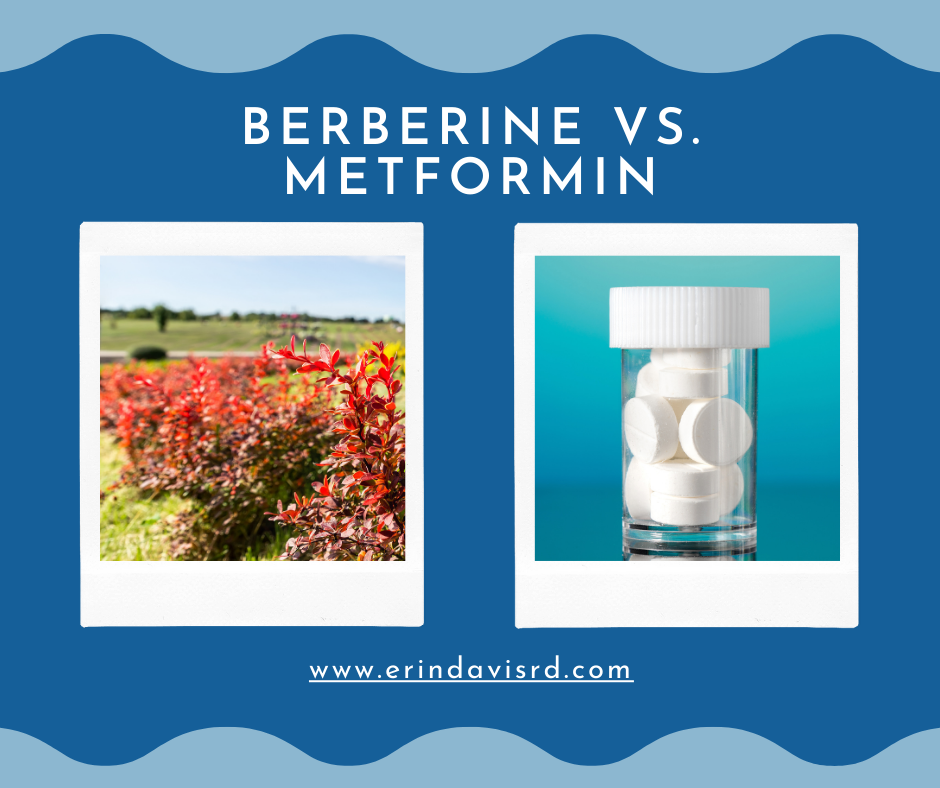There’s a lot of buzz around berberine these days. Is “nature’s Ozempic” effective at lowering blood glucose levels? How about berberine vs. metformin? Does berberine compete with the gold standard in diabetes treatment?
As a plant lover, I firmly believe that we are underestimating their power. First of all, we all know about the plentiful benefits that come along with eating plants. So why wouldn’t they provide the same benefits when concentrated in supplement form?
Turns out herbal supplements have health-promoting qualities. So why aren’t doctors prescribing herbal supplements and nutraceuticals? The problem is that it is difficult to recommend something that doesn’t have super impressive data to prove its efficacy.
Why do we have more research about pharmaceuticals vs. herbal supplements? My opinion is this—research is expensive. And something natural won’t create the profit margins a drug will. It’s hard to win against big pharma.
I have nothing against medications. Medications save lives. But plant medicine is worth looking at for our overall health.
I’m not alone in my thinking. The supplement business is booming. But supplements aren’t cut and dry. They aren’t regulated by the FDA and every company has a different formulation.
Today, I’ll run through the current research on berberine and how it stacks up to metformin. I’ll also give you tips for choosing a good quality supplement.

What is berberine?
Berberine is an alkaloid compound found in the roots, stems, and rhizomes of certain plants. Used as herbal medicine in China, India, and the Middle East for years, berberine has been shown to have some promising health benefits.
Berberine may prevent the development of atherosclerosis, or hardening of the arteries. It may also prevent type 2 diabetes and heart disease. Not only that, berberine has been shown to lower the risk of developing metabolic syndrome—a risk factor for diabetes and heart disease.
Additionally, berberine lowers cholesterol levels and improves the risk of liver damage. And berberine has been widely researched for its potential to treat cancer.
Berberine benefits for diabetes

Berberine has been shown to benefit those with diabetes. Here are some reasons why.
Lower glucose levels
In this study of people with type 2 diabetes, berberine lowered fasting glucose, post-meal glucose, and A1c, especially when combined with diabetes medications.
Berberine at a dosage from 200 mg/kg to 1.0 g daily is found to be effective for lowering blood sugars. Berberine works by inhibiting a certain enzyme so that glucose absorption is limited, thereby lowering blood sugar.
Insulin sensitivity
In type 2 diabetes, your body becomes less effective at using insulin. This is called insulin resistance. Your body compensates by making more insulin. But more insulin isn’t a good thing. High insulin levels result in weight gain and increased hunger. It may also be difficult to manage your blood sugar.
Berberine has been found to improve insulin sensitivity—making your body respond better to insulin. When your body is more sensitive to insulin, your body doesn’t have to work as hard to lower glucose levels.
Weight loss
Additionally, berberine may cause weight loss. As much as I despise dieting, I cannot deny that there are proven benefits to weight loss. Losing even a modest amount of weight can help improve your risk of diabetes complications.
Berberine vs. metformin

Metformin is the preferred initial treatment for type 2 diabetes. Most people with diabetes are familiar with metformin. You’ve either been on it at one point or are currently taking it.
Metformin lowers A1c levels by up to 1.5%. In a recent meta-analysis, it was found that berberine lowered A1c 0.63%.
The way metformin works is by improving insulin sensitivity. Metformin also reduces the liver’s production of glucose.
If you’ve been prescribed metformin, you may know about the common side effects—gas, diarrhea, and GI upset. The extended-release formulation may be easier for some to tolerate. Your provider may also gradually increase your dose to limit discomfort.
Perhaps you’re looking for a natural alternative, or an add-on to see better blood glucose levels. Berberine may be the answer. One study showed the effectiveness of berberine to be similar to metformin and pioglitazone.
Side effects of berberine
The side effects of berberine include GI upset, such as diarrhea, bloating, and gas. Basically the same side effects as Metformin.

You shouldn’t take berberine if you are pregnant and breastfeeding.
Berberine also hasn’t been well-researched in children, so avoid giving a child berberine.
Because berberine lowers glucose, you may be at risk for low blood sugar if taken in combination with other glucose-lowering medications.
Should you take berberine?
I personally love the idea of natural medicine. In the summer, you’ll often find me foraging for herbs in my field and woods and making tinctures and teas.
I believe that there are strong and effective medicines that live in the plants around us. And most times, I’ll err on the side of natural.
There are some proven benefits to berberine. And while it doesn’t lower glucose as much as metformin, you’ll likely get an improvement in your levels.
With that in mind, I can’t emphasize enough that you need to proceed with caution. Especially if you are taking diabetes medication already. As always, check with your provider before starting any herbal remedies.
Tips for choosing a good berberine supplement

If you’ve decided to try a berberine supplement, you’ll want to make sure the kind you buy actually has the ingredients it claims to have.
The FDA doesn’t regulate supplements. Unfortunately, some companies try to make a buck off of people trying to improve their health. They’ll fill the capsules up with inexpensive fillers and very little, if any, active ingredients.
First, look for a product that has undergone third-party testing. That means an independent lab has evaluated the contents and validated that the ingredient label matches what’s inside.
This is optional for the company. Testing isn’t mandated. That means the companies that choose to do this want to prove that they are credible.
If the supplement has a USP or NSF International marking on the label, that means the product has been tested and certified.
Speaking of companies, you’ll want to make sure it’s reputable. Read reviews and see what their customers are saying. In addition, I’d be leary of a company that is making lofty claims—like it will be the cure for all that ails you.
Work with a diabetes educator
One of the things I do with my clients is run through medications and potential supplements. I’ll check for interactions and guide you in your supplement decisions.
If you need help lowering your glucose levels, I strongly suggest meeting with a certified diabetes care and education specialist. I’m here to help if you’d like to get your diabetes under control without restriction.
Disclaimer: This information is intended as a self-help tool for your own use, at your own risk. My opinions do not reflect the values, thoughts, or opinions of the Academy of Nutrition and Dietetics or other professional health organizations.
About the author
Erin is a registered dietitian and diabetes educator with almost 20 years of experience. She specializes in weight-inclusive diabetes care and prevention, intuitive eating, fitness, and women’s health. She works as a consultant and writer in the health and wellness space. Erin is passionate about empowering people to manage their own health and to have peace with food.


